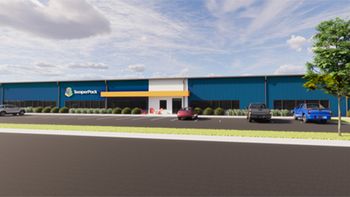
- Pharmaceutical Commerce - August 2023
- Volume 18
- Issue 4
Exploring Uses of RFID Technology
Offer potential to improve patient care, including in medication adherence.
In recent years, radio frequency identification (RFID) technology has made its presence known in the healthcare industry. Its ability to track and identify items remotely using radio waves has paved the way for applications in pharmaceuticals and healthcare. Let’s take a look at six uses of RFID poised to impact the healthcare industry, while examining the drivers and trends behind these innovations.
1. Enhanced supply chain management: RFID technology is impacting the pharma supply chain by offering real- time visibility and traceability. Medication containers with RFID-embedded labels enable precise inventory management, reduce errors and theft, and prevent counterfeiting and diversion. This level of transparency allows companies to track drugs from the manufacturing facility to the patient’s bedside, ensuring authenticity, reducing waste, and improving patient safety.
2. Drug tracking and inventory management within hospitals and healthcare facilities: By applying RFID labels to individual drug packages or containers, healthcare providers (HCPs) can actively monitor information in real-time, such as expiration dates, recalls, and stock levels. Automated RFID systems can alert HCPs when drugs are nearing expiration, ensuring timely removal and replacement. This proactive approach reduces medication errors and enhances patient safety by preventing the administration of expired or recalled products. Moreover, RFID-enabled inventory management systems optimize stock levels, enabling organizations to maintain adequate supplies while minimizing waste and avoiding stockouts.
3. Streamlined asset tracking: Managing and locating critical assets such as medical equipment, instruments, and devices poses significant challenges for healthcare facilities. RFID-tagged assets provide a centralized system that
tracks their locations, status, and maintenance schedules. By enabling real-time asset tracking, HCPs can optimize equipment utilization, enhance maintenance efficiency, and reduce costs associated with lost or misplaced assets.
4. Simplified patient monitoring: RFID technology is employed to develop advanced patient monitoring systems, particularly in the field of eldercare and chronic disease management. Wearable RFID tags can transmit vital signs and patient data to HCPs, enabling remote monitoring and timely interventions. This technology improves the quality of care and allows patients to maintain their independence while receiving appropriate medical attention.
5. Improved medication adherence: Non-adherence to prescribed medication regimens remains a widespread problem, but using RFID-enabled packaging and smart pill bottles can help address this issue. By incorporating RFID tags, these packages and bottles can record each instance of drug consumption. This data can be transmitted to HCPs, allowing them to monitor adherence and intervene if necessary. Enhanced medication adherence can lead to better health outcomes, reduced hospital readmissions, and lower healthcare costs.
6. Enhanced patient safety: Patient safety is top of mind, and RFID offers solutions to minimize medication errors and enhance patient identif ication. By embedding RFID tags in patient wristbands, healthcare organizations can provide accurate identification and reduce the risk of administering a drug to the wrong patient. RFID-enabled medication trays and cabinets can alert HCPs to potential drug interactions, allergies, or expired medications.
Various factors help drive the widespread integration of RFID, but the main contributors revolve around addressing ongoing regulatory requirements, alongside reducing costs and demonstrating efficacy as it pertains to operations.
Meeting regulatory requirements: Regulatory bodies are mandating stricter track-and-trace protocols, anti-counterfeiting measures, and patient safety standards. One of the regulations the pharma supply chain is gearing up for is the
Cost reduction and operational efficiency: The aforementioned technology enables streamlined workflows, reduces manual labor, and minimizes errors, leading to substantial cost savings and improved resource allocation. In a
Technological advancements: The continuous advancements in RFID technology are bringing benefits, such as lower costs, better durability, and improved read range. These developments are expanding RFID's potential applications and making it more accessible, affordable, and user-friendly for healthcare organizations.
Data-driven healthcare: The growing emphasis on data-driven decision-making and personalized medicine is driving the adoption of RFID technology. RFID-generated data provides valuable insights into patient behavior, medication usage patterns, and supply chain performance, enabling healthcare organizations to make informed decisions and improve patient outcomes.
RFID technology offers innovative solutions that improve supply chain management, streamline asset tracking, enhance patient monitoring, promote medication adherence, ensure patient safety, and enable efficient drug tracking and inventory management. The drivers of adoption, including regulatory requirements, cost reduction, technological advancements, and the emphasis on data-driven healthcare, fuel the widespread integration of RFID. As these innovations evolve, the healthcare industry will witness transformative changes throughout the entire healthcare ecosystem. Embracing the potential of RFID technology in healthcare will pave the way for a safer, more efficient, and patient-centered healthcare system.
About the Author
Karl Hoelper is Director of Marketing and Smart Packaging at CCL Healthcare.
Articles in this issue
over 2 years ago
Pharmaceutical Commerce - August 2023 Issue (PDF)over 2 years ago
Telling the 'Whole' Storyover 2 years ago
Collaboration at the Forefrontover 2 years ago
The Voyage to Beantownover 2 years ago
Are CEOs Getting Access Right?over 2 years ago
AFP Caution Flag for Patientsover 2 years ago
Breaking the Pharma Industry’s Bundled Pricing Arrangementsover 2 years ago
Doubling Down on Drug Adherenceover 2 years ago
Wholesalers Step Up Their Partneringover 2 years ago
Are ADMs a Viable Option for Pharma?Newsletter
Stay ahead in the life sciences industry with Pharmaceutical Commerce, the latest news, trends, and strategies in drug distribution, commercialization, and market access.




